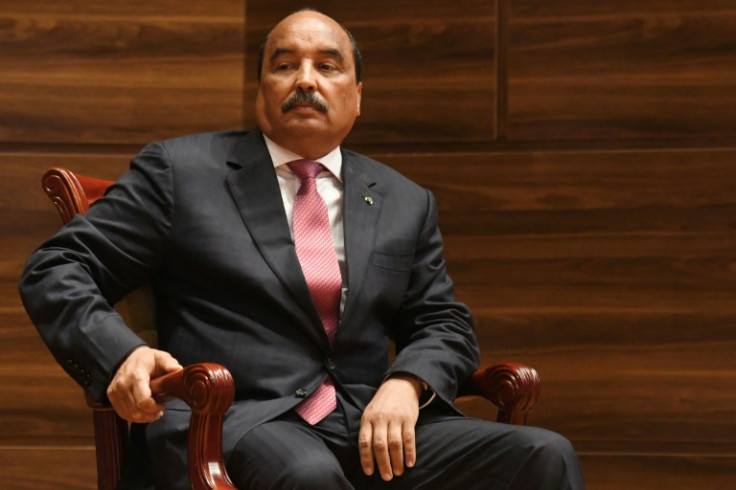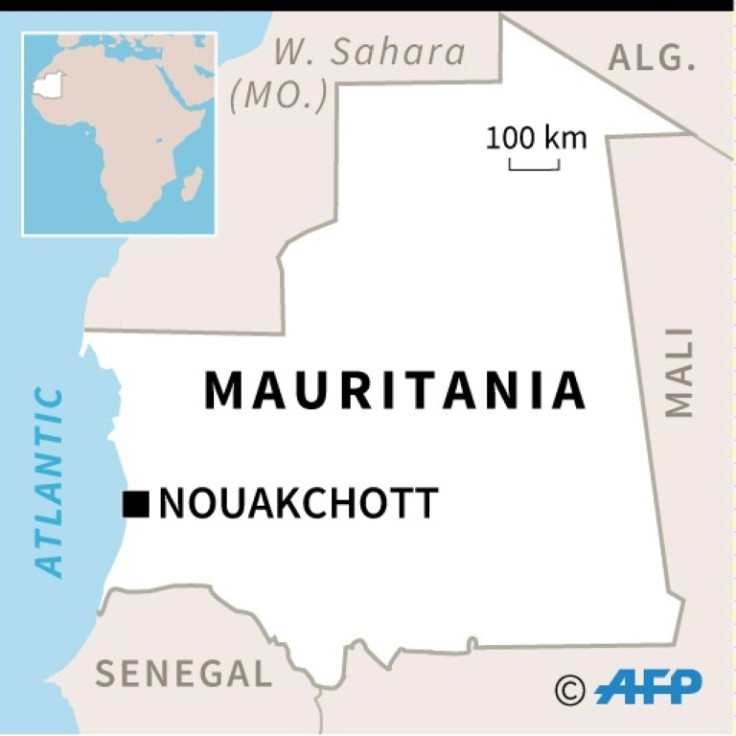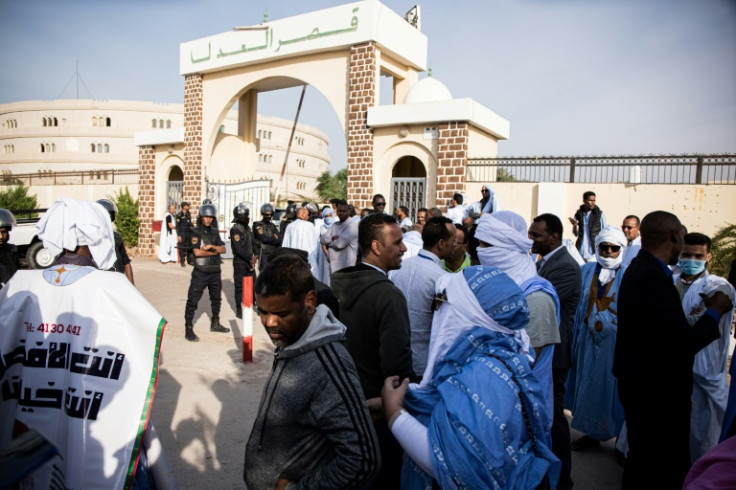Mauritania's Ex-leader Faces Graft Charges In Landmark Trial

The trial of Mauritania's former president Mohamed Ould Abdel Aziz opened Wednesday with the dramatic image of the former head of state in a cage-like box answering accusations he amassed an illicit personal fortune during his 11 years in power.
Aziz, a 66-year-old former general, appeared in court in the capital Nouakchott alongside nine other defendants, including former prime ministers, cabinet ministers and businessmen, an AFP reporter saw.
They face charges that include abuse of office, influence peddling, money laundering and illicit enrichment.
Proceedings began with a roll call of the defendants to which Aziz -- dressed in a traditional boubou, a surgical mask concealing part of his thin moustache -- rose and raised his hand.
Hundreds of police stood guard outside as around one hundred lawyers packed the courtroom, where cameras and mobile phones were prohibited.
Outside, dozens of people gathered ahead of the trial, some to support Aziz, others with signs demanding he return allegedly stolen money.
Prosecutions of former heads of state are rare in the world, but especially so in Africa.
"It is a first in the history of Mauritania and perhaps even in the Arab world for a former president to explain his enrichment," Brahim Ebetty, one of several lawyers representing the state, told AFP.
Aziz, a trader's son who came to power in a bloodless coup, stepped down in 2019 after two terms in which he defused a jihadist insurgency that has swept across other countries in the Sahel.
He was succeeded by his former right-hand man, Mohamed Ould Ghazouani, in the first peaceful transfer of power between elected leaders in the history of a country marked by military coups and upheaval.
But within months of the handover, allegations emerged of financial misconduct.
Aziz is suspected of siphoning off money from state contracts or the sale of real estate, amassing a fortune equivalent to more than $72 million.
"All the people in the box have used the name of the state, the function of the state, (to enrich themselves) -- especially Mr Aziz," Ebetty said.
The former president has denied the allegations but refused to answer investigators' questions about the sources of his wealth.
He describes himself as the victim of score-settling and argues that he has immunity from prosecution under the constitution.
"He completely rejects the accusations against him," one of his lawyers, Taleb Khayar Ould Med Mouloud, said ahead of the trial.
"Lots of people have grounds for hating him, including the Muslim Brothers, which he threw out of the country," he said, referring to the Muslim Brotherhood Islamist movement.
Ghazouani, also a former general, played a key role in Aziz's successful anti-jihadist strategy, and as late as December 2019 described his former boss as "my brother, my friend".
The following year, however, Aziz's fortunes began to falter -- though Ghazouani has denied any involvement in the case.
A parliamentary investigation was opened into financial dealings under his presidency, delving into oil revenues, sales of state assets, the winding up of a public company in charge of food supplies, and the activities of a Chinese fishing company.
The prosecution against the former president is unprecedented in Mauritania, a vast, conservative desert state that gained independence from France in 1960.
Mauritanians interviewed by AFP said they hoped the trial would set a new benchmark in the country's fight against graft.
Mauritania is ranked 140th out of 180 in the Corruption Perceptions Index for 2021 by the organisation Transparency International.
Aziz's daughter, Asma, told AFP the former president was "tired", with his cardiologist contacting her Tuesday night because her father had collapsed after being taken into custody.
Another of his lawyers, Antoine Vey, expressed alarm at his client's "arbitrary" arrest and conditions that he said suggested Aziz would not be given a fair trial.
"The case has been built on work that just looks like political revisionism," he told AFP.
He planned to ask for a postponement of the trial and was preparing to refer the case to United Nations bodies if the request is rejected.
None of the parties interviewed could say how long the trial would last.


© Copyright AFP 2025. All rights reserved.





















